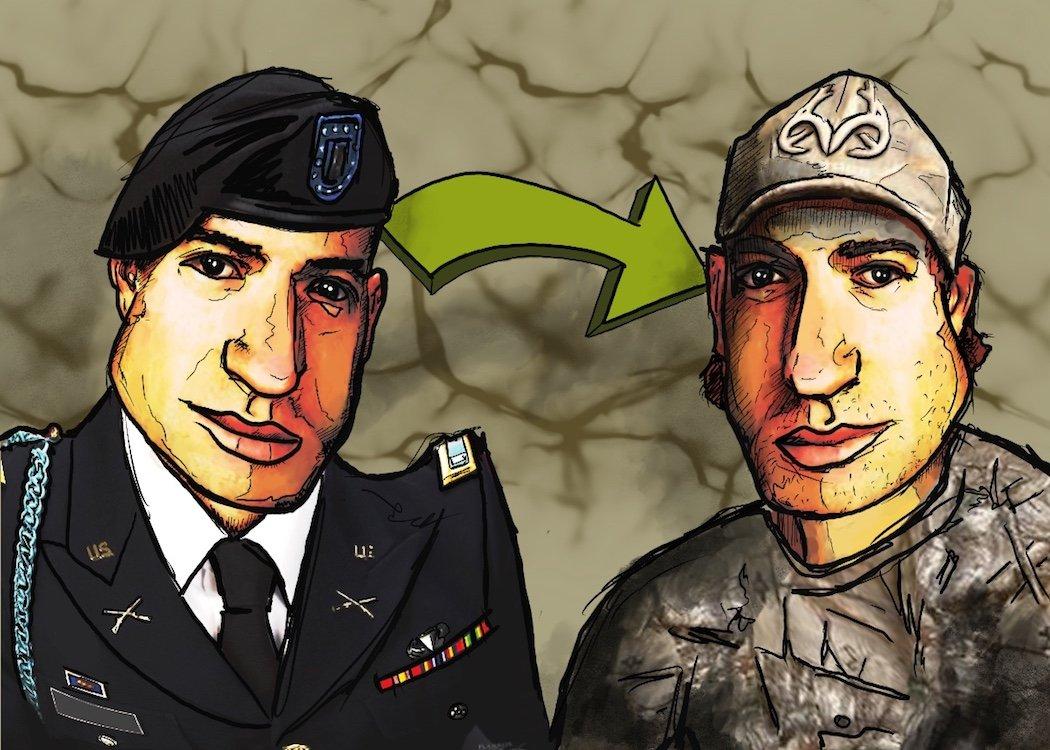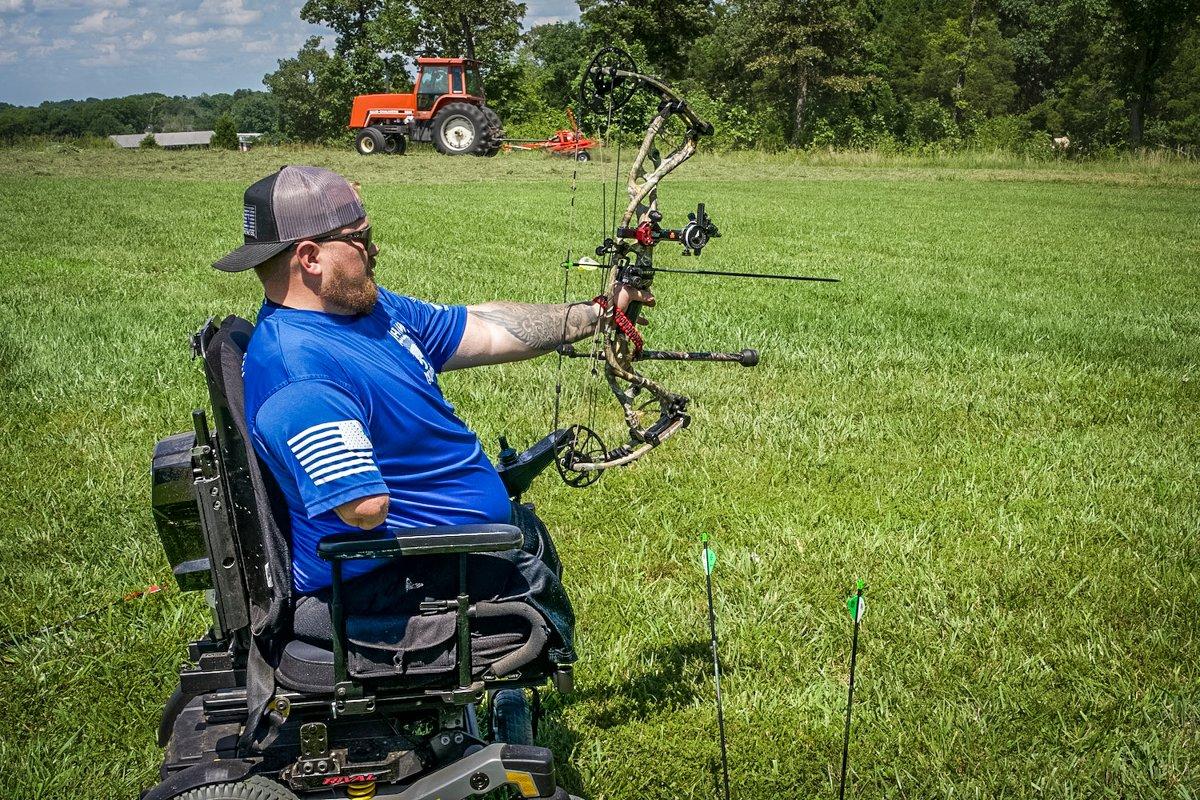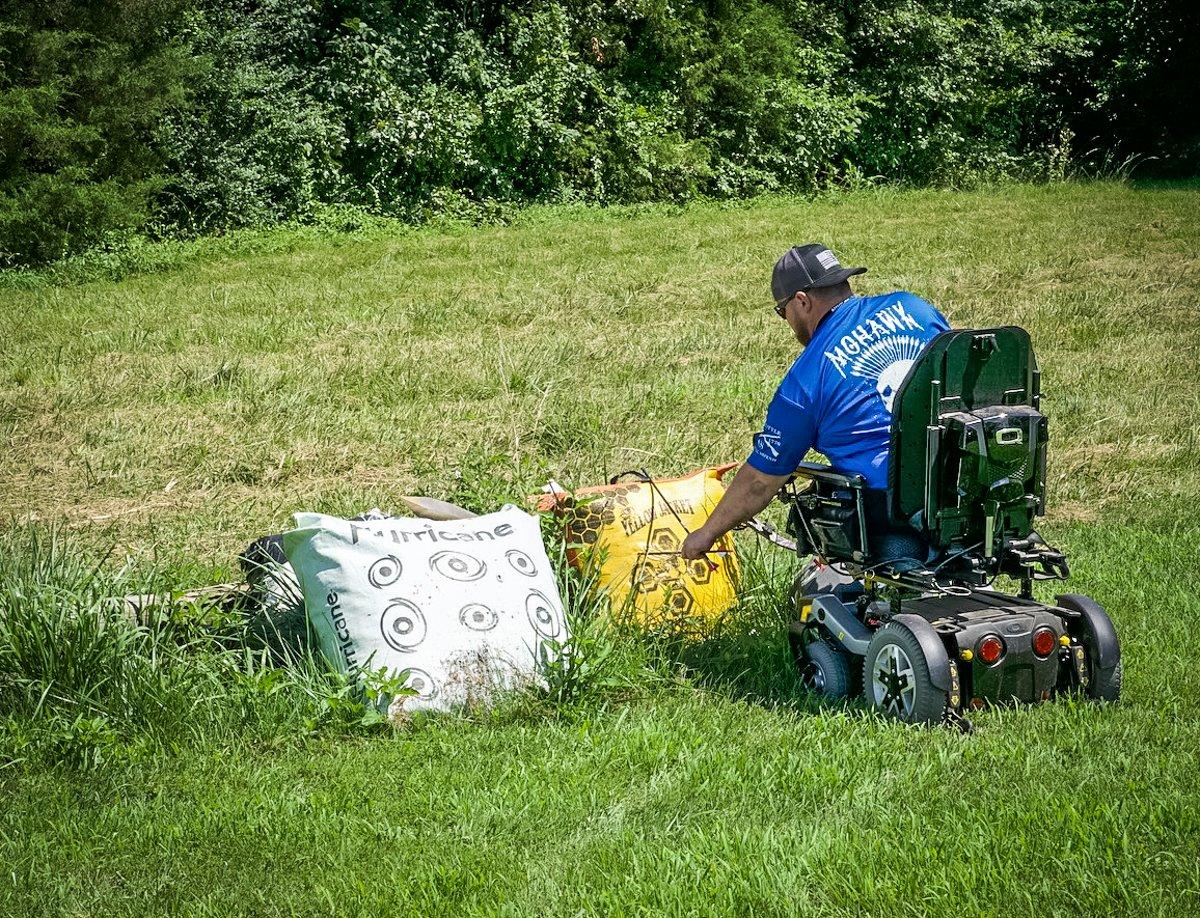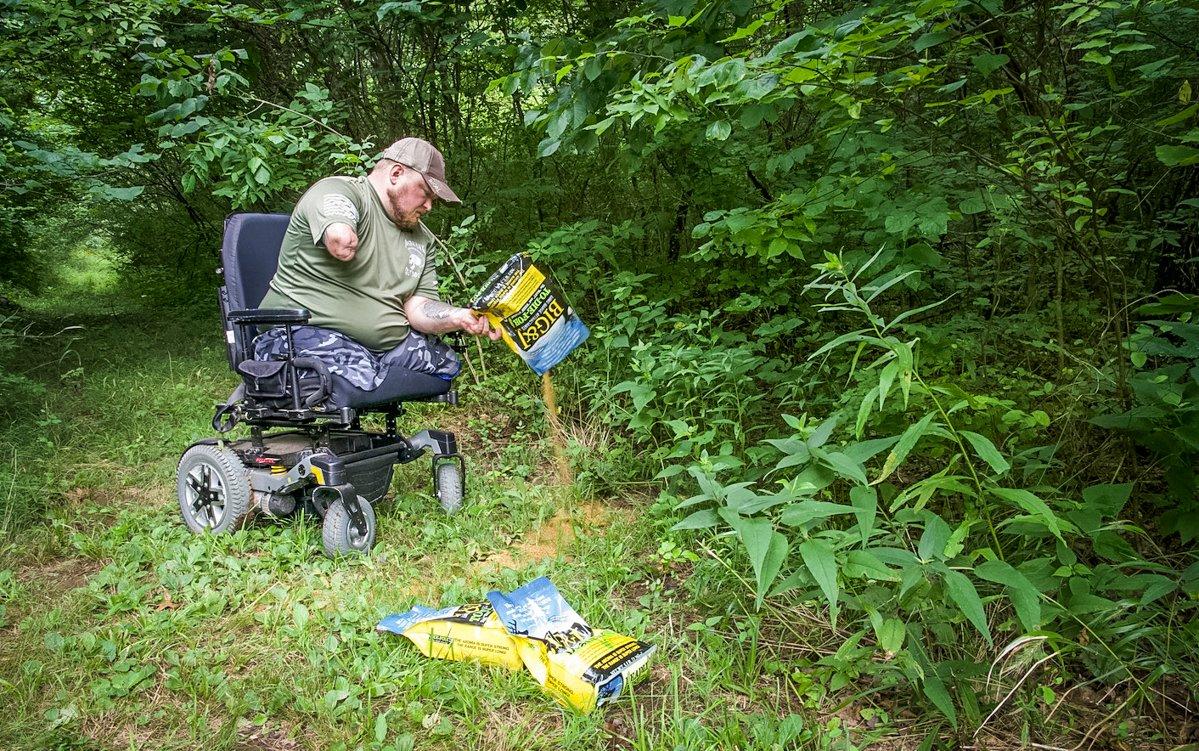Whether they grew up in the woods or are enjoying their first hunt, many military men and women have the skills and values to succeed in the outdoors
My grandfather, Papa, was a World War II veteran. Fortunately for me, he was retired when I was born and was able to spend a large amount of time teaching and passing along his knowledge of hunting and woodsmanship. Starting when I was about six years old, he never went hunting or fishing without me.
Hunting with Papa meant that I also got to hunt with his best friend, Jimmy, who was also a World War II veteran. Papa took me along when he hunted with his friends who were not veterans, too, giving me the opportunity to see a range of skilled hunters in action. Early in my hunting career, I began to notice Papa and Jimmy were more meticulous and better organized than many of their hunting partners. He and Jimmy were always prepared for any situation, whether it called for a broadhead sharpener or the items to repair a bow in the field.
Luckily, my experience of hunting with veterans has continued, as I have been blessed to work with a veteran's organization that provides opportunities for veterans to experience the outdoors and participate in activities such as fishing, 3-gun matches and hunting for a variety of species, from turkeys to elk. Joining these hunts has given me a chance to observe veterans in hunting situations and competition settings. I've learned that generally, veterans exhibit numerous, and similar, skills that make them excellent hunters.
Attention to Detail
Most veterans are mindful of details, and not just the glaringly obvious ones. They are attentive to the finest points, from calculating how geographical features can affect wind direction to accounting for thermals. This makes perfect sense because in order to save lives, they had to give careful attention to subtle dangers, such as noticing a tripwire in a doorway or a sniper's nest tucked in the shadows.
Confidence
Most veterans trust their instincts in the field. They carefully weigh their options, thoughtfully consider the ramifications, and confidently make their move based on an analysis of the information at hand. This ability is a huge asset to all hunters. The ability to consider all data and make quick decisions based on it can mean the difference between punching a tag or not.
Alertness
Veterans rarely get complacent. They stay vigilant even under the most adverse conditions and circumstances. Time and again, I have been on hunts with veterans when we were really behind the eight ball, so to speak, and enduring things like torrential downpours, bone-chilling cold, or a clock running out. I've never heard a veteran hunter complain or seen one wave the white flag. Rather, each has remained focused until they punched a tag or watched the last seconds of the hunt tick away.
Setting Goals
Veterans are often goal-oriented, not just in hunting, but in everyday life. Goals help us hunters direct our energies on a particular endpoint and guide our strategic planning. I personally set short- and long-term hunting goals, as they allow me to narrow my focus and keep my eye on the prize — and sometimes keep inattentiveness in check. Setting a goal is the first move in a series of events that ultimately leads to accomplishment. I don't actually know why every veteran I've hunted with is so goal-oriented. I'm not sure whether the skill is trained into them or innate, but one thing is certain: the goals they set help them become successful soldiers, hunters and human beings.
They Don't Fail
Most of us know the phrase, Failure is not an option. Veterans follow this code more effectively than any other group I have encountered in hunting. Most bowhunters fail more than they succeed. But failure is not just being unsuccessful. It's more a state of mind. Is it a failure to bowhunt whitetails for 10 days in a row without getting a shot opportunity? Not to the veterans I have hunted with. Instead it is part of the learning process, and how they grow as hunters. In my opinion, we actually learn more in hunting by making mistakes. Blunders often trigger an emotional response, and we remember them vividly. Even so, it is not always easy to swallow a mistake. Yet I have observed veterans take mishaps in stride, with patience and poise, and turn them into learning experiences.
Respect
Respect of our natural resources, life and fellow men and women is another common denominator possessed by veterans. My parents raised me to show respect for everyone, and Papa and Jimmy echoed those sentiments in every way, including in hunting and fishing. In my experience, veterans match their espoused values with their actual behaviors. It goes beyond, Yes sir, No ma'am, Please, and Thank you. Veterans demonstrate respect in their actions. They walk the walk, making them skilled hunters and, more importantly, great people.
Profiency
Proficient hunters must master their weapons. You will have a hard time tagging the buck you have been watching if you are unable to make a well-placed shot. That veterans are trained to be excellent shots is a given; but mastering a weapon goes much deeper than basic marksmanship. It includes weapon handling, safety and manipulation, and these are skills drilled into soldiers.
I have hunted with veterans who have lifelong experience in the outdoors, as well as veterans who are on their first hunting adventure. Remarkably, both groups possess similar skills, and these skills parlay well into the hunting world. There are many parallels between serving in the armed forces and hunting, including the brotherhood experienced in the military that easily translates into the comradery found in hunting. Also, the skillsets men and women learn in the military mirror those used by hunters.
Veterans are challenged throughout their military careers to be the best that they could be. I have found that most veterans are not looking for a chip-shot hunt. Instead, they want a challenge, and free-range hunting presents just that. It gives them an opportunity to use many of their skills and capitalize on their experiences. Finally, through working with this organization, I have observed many veterans and civilians forge strong bonds based on common skillsets and the passion they share for hunting. As a result of hunting, several of my closest friends are veterans.
Find a veteran hunting partner and see for yourself what I already know. Veterans make great hunting buddies.
Don't Miss: Triple Amputee Veteran Bowhunts Big Deer
Check out more stories, videos and educational how-to's on deer hunting.











